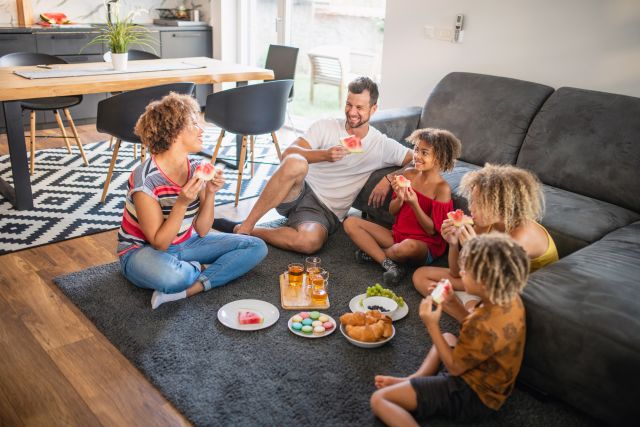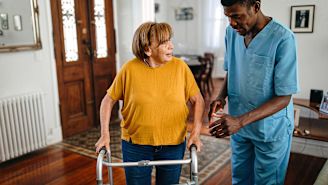In a world of fast food, instant messages and 24/7 availability, most of us want quick answers, especially when it comes to our health. Most of us, that is, except Michael Finkelstein, MD. An integrative medicine specialist and the author of Slow Medicine: Hope and Healing for Chronic Illness, Dr. Finkelstein believes that the answer to true health and well-being lies in slowing down, not speeding up. We spoke with him about the slow medicine movement, and how he believes it can help people stay healthy in a fast-paced world.
What is slow medicine?
Dr. Finkelstein: Slow medicine essentially is the antidote to the fast world and how it affects us. Particularly in the West, there's competition on every level, even for children – first for grades, and then for jobs, and then for status and power. All along the way, we're bombarded with the fast-pressured world. We're not living so much in harmony with the rhythm and the cycles of nature.
How did you get involved with slow medicine, and why are you so passionate about it?
Dr. Finkelstein:I was seven years old was when I decided, believe it or not, to become a physician. It was 1967, and medicine was really at its peak if you think about it. Science was emerging, and technology -- antibiotics, medications, intensive care units -- were all coming into development. What doctors could really do to help people get out of trouble, and stay alive, in fact, and actually deal with some chronic diseases was pretty remarkable, compared to what was going on five, ten, fifteen years earlier.
After a decade or so of practicing, I realized that despite how good my training was, and how strong Western medicine was, there were a lot of people who were still suffering. My mind started to open to the question, "Is there something more?" In fact, my patients were asking me that: "Is there something else I can do?"
When I went back to school to study integrative and holistic medicine, a whole new set of tools became available for my practice, and that was why I'm so passionate. I'm very excited to offer other methods, and other perspectives on how one can approach health and healing.
You say that you don't have to be sick to use slow medicine. Can you explain that?
Dr. Finkelstein: We're raised to believe that illness is something we should avoid, and that the target is illness. What if we were raised to believe that a healthy, whole-quality life was something to achieve? It's a completely different mindset. Slow medicine really is about helping people shift their perspective. Instead of running from a disease, they're running toward a life.
What are some of the challenges in teaching slow medicine?
Dr. Finkelstein:The biggest challenge I find is that people are indoctrinated to believe [that medicine] should come in a pill, and it should be rapid -- a quick fix. If it requires a lot of work, and especially if it requires a lot of shifting in my way of living, there's a lot of resistance. One of the things that is the most challenging for me is to break through to individuals [and help them see] how much control they have, what potential they have, and how much better they would feel.
How can someone start applying the principles of slow medicine?
Dr. Finkelstein: One of the things that I say is to carve a day out of every week -- call it a Sabbath -- and do something distinctly different on that day. Not for the whole 24 hours, necessarily, but let's say on that day you're going to spend an hour outside. You're going to unplug from technology for X number of hours. You're gong to sit and have a meal in your own home … with people you love, and you're going to adorn the table with flowers and candles, and you're going to have it be a sacred meal, almost the way a holiday meal would be, for no other excuse than that this is my weekly practice. That sort of thing is a good place to start. Some people will start by spending five minutes every morning of just stepping outside and breathing. So instead of rushing right into your day, maybe take some deep breaths, get some fresh light and air, and then move into your day -- and similarly, maybe doing that at the end of the day.






